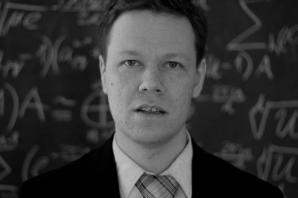Towards the next revolution in computer science
We are nowadays in the middle of the second quantum revolution. The first one brought forward the rules that govern physics at the atomic level – the quantum mechanics. The second entails the use of these rules for developing new technologies. In his ERC-funded project, Prof. Andris Ambainis from the University of Latvia investigates new methods of developing quantum algorithms and the limits of quantum computing.

What is quantum computing?
Quantum computing is a new technology that applies the laws of quantum mechanics to computer science. Quantum mechanics in turn deals with laws of physics on the level of atoms and photons – which are very different from the laws of physics that we see in larger objects. More precisely, electrons and photons can spin in several different ways simultaneously. This means they can be used to do numerous computer calculations at the same time and solve certain problems much faster than conventional computers. Even though there are several large-scale experiments building quantum computers we are not as close to building a quantum computer as we would like to be.
Creating quantum algorithms and testing their limits
In his ERC project, Prof. Ambainis and his team at the University of Latvia has taken on the ambitious task to address three major challenges. Firstly, they focus on the creation of quantum algorithms and, more generally, on the new methods for their development. In this quest they are testing several new approaches such as quantum walks, span programs, learning graphs, and linear equation solving. This endeavour might result in understanding how to 'programme' the quantum particles so that they perform complex computations hundreds times faster than conventional computers.
Secondly, Prof. Ambainis studies the limits of quantum computing. This means, for example, investigating which problems can be solved by quantum computers, how much better they can perform than conventional computers, when and how quantum speedups can be achieved. These fundamental questions can tell researchers what exactly would be the advantage of quantum computers.
Implications
The third direction of the project is to find application for ideas of quantum computation in other research fields. Progress on quantum algorithms has already contributed to developing better algorithms for ordinary computers. Some principles of quantum technology hold promise in examining black holes or other physical phenomena. Chemical reactions are essentially quantum processes and thus are very difficult to model on a conventional computer, but most probably they can be reproduced by a quantum computer.
The field of quantum technology is so new that Prof. Ambainis' frontier research has all the chances of leading to discoveries and breakthroughs. The findings could for example reinforce conventional cryptography thus providing more secure data transmission.


